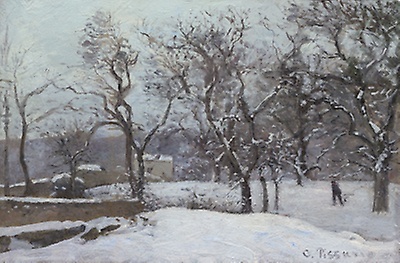Deborah J. Ross's Blog, page 69
March 25, 2019
Citadels of Darkover Author Interview: Leslie Fish
Coming in May 2019
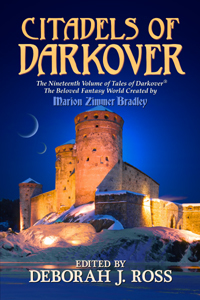 Strongholds of rock . . . fortresses of the spirit . . . a planet set apart . . .
Strongholds of rock . . . fortresses of the spirit . . . a planet set apart . . .
Citadels can be psychic, emotional, and cultural as well as military, and the wonderfully imaginative contributors to this volume have taken the basic idea and spun out stories in different and often unexpected directions.
Pre-order it at:
ePub https://books2read.com/u/4XRR0N
Kindle https://amzn.to/2TmBBW0
Here I chat with contributor Leslie Fish:
Deborah J. Ross: How did you become a writer?Leslie Fish: I've always been an avid reader and storyteller, famous in summer camp for my long list of memorized "ghost stories". The next step was inventing my own stories, and then writing them down.
DJR: What authors inspired you?LF: Wow, where do I start? H. P. Lovecraft, Robert Bloch, the Sci-Fi greats: Bradbury, Bradley, Brackett, Asimov, Heinlein, Sturgeon, Ellison, and too many more to count.
DJR: Were there any pivotal moments in your literary journey?LF: My first professionally published story, a crime-tale with a twist, published in a short-lived pulp crime magazine. Once I knew I could actually publish my stories, there was no stopping me. And then there was the great assist I got from C. J. Cherryh, who invited me to write in her "Merovingian Nights" series. And of course my invitation to come romp in the "Darkover" universe. I treasure them all.
DJR: Tell us about your introduction to Darkover. LF: While I was in college I spent my time studying, protesting, attending folkmusic concerts, and reading Science Fiction books, which I mostly found at the corner bookstore down the street from my dorm. One day I went in to search the paper-back book kiosk and came across a new one: an Ace Double with "The Planet Savers" on one side and "The Sword of Aldones" on the other. One read, and I was hooked forevermore.
DJR: What about the world drew you in?LF: What first drew me were the intricate plots, the rich characters, and the Sci-Fi treatment of what had until then been a Fantasy theme: psychic ability. Beyond that, I was entranced by the multiple intelligent species and complex societies of the elaborate world.
DJR: What inspired your story in Citadels of Darkover? How did you balance writing in someone else’s world and being true to your own creative imagination?LF:On the cover of a previous Darkover collection there was a gorgeous painting of a woman standing by a shore, with an unmistakable mer-man leaping out of the water behind her. I was disappointed that there was only one story in the collection about the mer-folk, and no further mention of them in subsequent books, so I decided to write one myself. Any well-constructed world has enough complexity to provide for a near-infiinity of stories without cramping one's style -- much like this one.
DJR: Is there another Darkover story you would particularly like to write?LF: Oh, there are several! I'd like to publish tales about the Catmen, the Tree-Folk, the Chieri of course, the relationships between post-Empire Darkover and its neighboring worlds, and so on.
DJR: What have you written recently? What is your favorite of your published works and why?LF: Technically, this is my most recent story. It's hard to choose a particular favorite, although I'd admit that my novel "Of Elven Blood" would rank near the top.
DJR: What lies ahead for you? LF: Right now I'm working on four novels at once: a Fantasy-Romance with Craig Franklin, a Sci-Fi novel about the physics of metaphysics with Chris Madsen, a raucous women's comback to "50 Shades of Grey" with Rasty, and a novel about AI that's entirely my own. I'm certainly keeping busy!
DJR: Anything else you’d like our readers to know about you, Darkover, or life in general?LF: If anyone would like to own a purebred experimental super-intelligent cat, contact me through my Facebook page. We'll work something out.
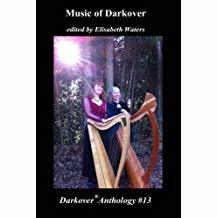 Leslie Fish fell in love with science fiction at the age of eight, mostly through EC Comics and the movie “Destination Moon.” Born and raised in a boring, respectable suburb of Newark, New Jersey, she swore that she would lead an adventurous life or die trying. As a result, she became a war-protester, a folksinger, an industrial pirate, a union organizer, a go-go dancer, a dominatrix, and a science fiction writer. She’s best known for her several albums of science fiction folk-music, or filk, which are available from Amazon or in the dealers’ rooms of science fiction conventions. She currently lives in a farming town in Arizona, along with her husband Rasty, an orchard of exotic fruit-trees, and her experimental breed of super-smart Silverdust cats. This story deals with yet another of Darkover’s non-human intelligent species, this time a rare one that’s almost never been studied before.
Leslie Fish fell in love with science fiction at the age of eight, mostly through EC Comics and the movie “Destination Moon.” Born and raised in a boring, respectable suburb of Newark, New Jersey, she swore that she would lead an adventurous life or die trying. As a result, she became a war-protester, a folksinger, an industrial pirate, a union organizer, a go-go dancer, a dominatrix, and a science fiction writer. She’s best known for her several albums of science fiction folk-music, or filk, which are available from Amazon or in the dealers’ rooms of science fiction conventions. She currently lives in a farming town in Arizona, along with her husband Rasty, an orchard of exotic fruit-trees, and her experimental breed of super-smart Silverdust cats. This story deals with yet another of Darkover’s non-human intelligent species, this time a rare one that’s almost never been studied before.

 Strongholds of rock . . . fortresses of the spirit . . . a planet set apart . . .
Strongholds of rock . . . fortresses of the spirit . . . a planet set apart . . .Citadels can be psychic, emotional, and cultural as well as military, and the wonderfully imaginative contributors to this volume have taken the basic idea and spun out stories in different and often unexpected directions.
Pre-order it at:
ePub https://books2read.com/u/4XRR0N
Kindle https://amzn.to/2TmBBW0
Here I chat with contributor Leslie Fish:
Deborah J. Ross: How did you become a writer?Leslie Fish: I've always been an avid reader and storyteller, famous in summer camp for my long list of memorized "ghost stories". The next step was inventing my own stories, and then writing them down.
DJR: What authors inspired you?LF: Wow, where do I start? H. P. Lovecraft, Robert Bloch, the Sci-Fi greats: Bradbury, Bradley, Brackett, Asimov, Heinlein, Sturgeon, Ellison, and too many more to count.
DJR: Were there any pivotal moments in your literary journey?LF: My first professionally published story, a crime-tale with a twist, published in a short-lived pulp crime magazine. Once I knew I could actually publish my stories, there was no stopping me. And then there was the great assist I got from C. J. Cherryh, who invited me to write in her "Merovingian Nights" series. And of course my invitation to come romp in the "Darkover" universe. I treasure them all.
DJR: Tell us about your introduction to Darkover. LF: While I was in college I spent my time studying, protesting, attending folkmusic concerts, and reading Science Fiction books, which I mostly found at the corner bookstore down the street from my dorm. One day I went in to search the paper-back book kiosk and came across a new one: an Ace Double with "The Planet Savers" on one side and "The Sword of Aldones" on the other. One read, and I was hooked forevermore.
DJR: What about the world drew you in?LF: What first drew me were the intricate plots, the rich characters, and the Sci-Fi treatment of what had until then been a Fantasy theme: psychic ability. Beyond that, I was entranced by the multiple intelligent species and complex societies of the elaborate world.
DJR: What inspired your story in Citadels of Darkover? How did you balance writing in someone else’s world and being true to your own creative imagination?LF:On the cover of a previous Darkover collection there was a gorgeous painting of a woman standing by a shore, with an unmistakable mer-man leaping out of the water behind her. I was disappointed that there was only one story in the collection about the mer-folk, and no further mention of them in subsequent books, so I decided to write one myself. Any well-constructed world has enough complexity to provide for a near-infiinity of stories without cramping one's style -- much like this one.
DJR: Is there another Darkover story you would particularly like to write?LF: Oh, there are several! I'd like to publish tales about the Catmen, the Tree-Folk, the Chieri of course, the relationships between post-Empire Darkover and its neighboring worlds, and so on.
DJR: What have you written recently? What is your favorite of your published works and why?LF: Technically, this is my most recent story. It's hard to choose a particular favorite, although I'd admit that my novel "Of Elven Blood" would rank near the top.
DJR: What lies ahead for you? LF: Right now I'm working on four novels at once: a Fantasy-Romance with Craig Franklin, a Sci-Fi novel about the physics of metaphysics with Chris Madsen, a raucous women's comback to "50 Shades of Grey" with Rasty, and a novel about AI that's entirely my own. I'm certainly keeping busy!
DJR: Anything else you’d like our readers to know about you, Darkover, or life in general?LF: If anyone would like to own a purebred experimental super-intelligent cat, contact me through my Facebook page. We'll work something out.
 Leslie Fish fell in love with science fiction at the age of eight, mostly through EC Comics and the movie “Destination Moon.” Born and raised in a boring, respectable suburb of Newark, New Jersey, she swore that she would lead an adventurous life or die trying. As a result, she became a war-protester, a folksinger, an industrial pirate, a union organizer, a go-go dancer, a dominatrix, and a science fiction writer. She’s best known for her several albums of science fiction folk-music, or filk, which are available from Amazon or in the dealers’ rooms of science fiction conventions. She currently lives in a farming town in Arizona, along with her husband Rasty, an orchard of exotic fruit-trees, and her experimental breed of super-smart Silverdust cats. This story deals with yet another of Darkover’s non-human intelligent species, this time a rare one that’s almost never been studied before.
Leslie Fish fell in love with science fiction at the age of eight, mostly through EC Comics and the movie “Destination Moon.” Born and raised in a boring, respectable suburb of Newark, New Jersey, she swore that she would lead an adventurous life or die trying. As a result, she became a war-protester, a folksinger, an industrial pirate, a union organizer, a go-go dancer, a dominatrix, and a science fiction writer. She’s best known for her several albums of science fiction folk-music, or filk, which are available from Amazon or in the dealers’ rooms of science fiction conventions. She currently lives in a farming town in Arizona, along with her husband Rasty, an orchard of exotic fruit-trees, and her experimental breed of super-smart Silverdust cats. This story deals with yet another of Darkover’s non-human intelligent species, this time a rare one that’s almost never been studied before.
Published on March 25, 2019 01:00
March 22, 2019
Book Reviews: Masquerading as Science Fiction?
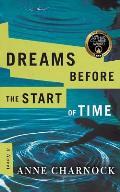 Dreams Before the Start of Time, by Anne Charnock (2017, 47North); and The Rift, by Nina Allan (2017, Titan).
Dreams Before the Start of Time, by Anne Charnock (2017, 47North); and The Rift, by Nina Allan (2017, Titan).Spoiler Alert...
What makes science fiction a genre? Is it the bells and whistles, the FTL space ships, the futuristic technology? Is it the ability to travel in time or across vast regions of space? Does it involve interactions with alien species, either for the first time or as a matter of course? Or is it simply because the author or the publisher says so? I will not dignify the argument put forth by “litr’ary” types that science fiction is an inherently inferior form of literature. Clearly, they haven’t been reading the superbly imaginative, elegantly crafted work of the last couple of
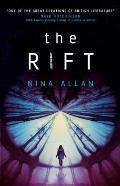 decades.
decades.Following the principle of showing instead of telling, I refer you to the discussions surrounding The Time Traveler’s Wife (by Audrey Niffenegger, Harcourt, 2003). With due respect to my colleagues who might disagree, I thought the only people who considered this novel science fiction were those outside the genre. Yes, the man of the romantic pair bops about from one time period to another (losing his clothing along the way), but that did not make it science fiction in my eyes. I could accept it as romance. The focus, as in Diana Gabaldon’s Outlander, is the (romantic) relationship between two people. (Although Outlanderinvolves time travel, very few readers I know would classify it as science fiction rather than fantasy or romance.) For me, the aspect that put The Time Traveler’s Wife firmly outside science fiction was the failure to develop the implications of time travel for society. How has this one man’s ability changed the world? What are the moral and political consequences of his actions? Why isn’t he found out and his abilities exploited? How can the “fabric” of time continue linearly with such repeated “tears”?
In other words, science fiction doesn’t just present nifty ideas in a vacuum – it focuses on how those ideas and gadgets and twists of fate have larger effects on the natural and human world. Perhaps back in the age of pulp magazines, a fun gimmick was sufficient to sustain a story with flimsy plotting, cardboard characters, and mediocre prose, but that hasn’t been true for a long time now.
This, too, is why I believe Margaret Atwood’s The Handmaid’s Tale falls squarely in the science fiction genre. Atwood herself refused to consider her dystopian world as science fiction, calling it instead “speculative fiction.” I think that’s a distinction without a difference. One critic (readily identifiable as ignorant of the field by his use of “sci-fi”) wrote, “Sci-fi sells us fantasies. Margaret Atwood’s classic novel is all about the danger of fantasy.” To those of us who are actually conversant with science fiction, the reverse is true, and is a powerful argument for The Handmaid’s Tale belonging on the same shelf as other brilliantly written feminist dystopian science fiction.
On the other hand, sometimes books like The Time Traveler’s Wife are marketed as science fiction but lack the thoughtful development of the implications of technology (or time travel) on society as well as the lives of a few individuals. Dreams Before the Start of Time, by Anne Charnock (2017, 47North) and The Rift, by Nina Allan (2017, Titan) fall into this category. Both are beautifully written on a prose level and both contain “sfnal” elements, yet to my mind, neither is properly science fiction.
Dreams Before the Start of Time, by Anne Charnock is a series of related vignettes that follow, very loosely, a group of people through a generation. The speculative elements are changes in reproductive technology, beginning with existing current IVF (in vivo fertilization). External artificial wombs give women the option of bearing children without physical pregnancy. Other techniques make it possible for a baby to arise from a single person, male or female, or for two people of the same sex to have a child that is genetically both of theirs. The characters use these and other advances, but the technology often seems an afterthought, one that does not in any significant way impact the relationships between parents and children or step-children, friends, and couples. Couples still agonize over giving their children (unborn or born) the best advantages; single parents cope with stress; children born to single mothers wonder who their fathers are; sperm donors wonder who their offspring are. How is that new and futuristic? The sense of wonder or a wonderful or terrifying future is utterly absent. A gay couple who create a child that is genetically theirs seem in no way different from one in the present day who adopt a child. Perhaps the author’s point is that advances in reproductive technology cannot affect basic human relationships, coming down squarely on the side of biology versus culture. I find that premise, while worthy, to be insufficient to sustain so many pages, especially at the cost of examining the interaction of methods that allow anyone to have a child and burgeoning overpopulation and its effect on dwindling resources, migration, and so forth.
More than that, Charnock’s future plays almost exactly as our world now. There are no significant changes in everyday technology, no climate-driven disasters, no wars or upheavals in government. Tourism abounds; the Earth is a relatively static place.
Charnock’s prose is effortless and her characters are beautifully drawn. I think, though, that science fiction readers will find this collection of vignettes superficial and exasperatingly sedate. Mainstream readers, on the other hand, may love it if they can be persuaded to overcome the stigma of the “science fiction” label.
The Rift, by Nina Allan, is equally beautifully crafted. Both novels show an admirable mastery of language and nuance. Allan’s work is far more dramatic, as well as possessing a coherent central story line. Her story centers on the disappearance of a teenage girl – Julie -- in rural Britain, the emotional and forensic fallout, the subsequent disintegration of her family, and the alienation of her surviving sister, Selena. The evidence points to Julie having been the victim of a serial killer. When Julie contacts Selena decades later, she says she has been kidnapped by aliens, a humanoid race very like ours but with a different culture and planetary politics. Parallel story lines follow the initial investigation, the reunion of the two sisters, and the adventures of Julie on another world. Of these, I found the legends and histories of the alien people the most interesting and emotionally involving. “The Mind-Eaters of Pakwa” was chilling and deeply moving.
As gripping as these mini-stories were, however, the book kept circling around to the central question: has Julie really been living on another planet or did she make it all up? And if she did, where has she been? Why has she contacted her family now, after all this time? Who is telling the truth, and what are the consequences of shattering recovery from a tragedy that has defined a family for so long?
Here’s the spoiler: After almost the entire book builds on the believability of Julie’s story, the rich detail of her adoptive planet, and the slow rebuilding of trust between the sisters, the revelation at the end hit me as a total disappointment. The discovery of Julie’s decomposed remains, right where she had disappeared, provide conclusive DNA proof that she died years ago. I wanted to throw the book across the room. Who’s been masquerading as her, well enough to convince Selena (and their mother)? And for what cruel reason? Or is all of this a delusion on the part of Selena, who has given every indication of being a rational person up until now? Maybe an author can get away with such a contradictory ending in mainstream, but science fiction readers demand a higher standard of logic, not to mention clarity. It’s right up there with “And it was all a dream” or “Fooled you!” type endings. Therefore, despite the intriguing possibility that Julie actually traveled through a dimensional portal to another world, and that world is as vivid and troubled as our own, the cop-out ending kicked this novel out of the sfnal sphere for me. Which made me sad because I really did love that other world and its people.
There’s another possible ending, tacked on at the end without any previous suggestion, that Julie is an alien from that other world:
If she never called Julie again, no one would blame her. The DNA test said her sister was dead, she had Schechter’s paperwork to prove it. So what was wrong, then, what was wrong?
Her sister was alone on an alien planet, and she had no one.
No one but me. So what if she isn’t the same as she was when she went missing? What difference does it make?
Whoever the hell she is, she’s still my sister.
That would have been an incredibly cool story. But it isn’t the one I read.

Published on March 22, 2019 01:00
March 19, 2019
Book View Cafe Book Blast

To show our appreciation for all the readers who have stuck with us through our move to a new server, we at Book View Cafe are holding the BVC Book Blast. This week, and this week only, every book in the bookstore is 20 percent off.You don’t have to do anything to get the discount; it will happen automatically at checkout. So use this time to browse through the authors on the bookstore page and try something new. Or pick up one of our anthologies and read work by a bunch of BVC writers.This sale won’t last long, so take advantage and fill up your e-readersHere's my Author Page with my books... and also check out the anthologies I've edited...

Published on March 19, 2019 01:00
March 18, 2019
Citadels of Darkover Author Interviews: Jane M. H. Bigelow
Coming in May 2019
 Strongholds of rock . . . fortresses of the spirit . . . a planet set apart . . .
Strongholds of rock . . . fortresses of the spirit . . . a planet set apart . . .
Citadels can be psychic, emotional, and cultural as well as military, and the wonderfully imaginative contributors to this volume have taken the basic idea and spun out stories in different and often unexpected directions.
Pre-order it at:
ePub https://books2read.com/u/4XRR0N
Kindle https://amzn.to/2TmBBW0
I asked contributor Jane M. H. Bigelow about her story:
Deborah J. Ross: What inspired your story in Citadels of Darkover?
Jane M. H. Bigelow: One of the essential conflicts in Darkover's long history is between the power and the dangers of laran. But what if not using your gift is as dangerous as using it?
"Fire Storm" was one of several ideas that I considered writing for Citadels of Darkover. As our own fire season here in the western U.S. filled the sky with smoke most days, I found that it was the one that really drew me.
It also let me explore a part of Darkovan history that I'd never written in before: the Ages of Chaos. I've always enjoyed reading about those turbulent times, but somehow not found a story of my own for them. As stories often do, it turned out differently than I had originally planned.
Not much has changed in my bio. After having a rather medical year, we are both well. I have still not finished my paranormal suspense novel, The Body Under the Bed, and have resorted to going around telling everybody that I will have a complete and coherent draft by the end of the year. This may work almost as well as having an anthology deadline for getting me to finish the work! I can't let my crit group down. The cats are fine and furry, and the garden's doing well.
Jane M. H. Bigelow had her first professional publication in Free Amazons of Darkover. Since then, she has published a fantasy novel, Talisman, as well as short stories and short nonfiction on such topics as gardening in Ancient Egypt. Her short story, "The Golden Ruse" appeared in Luxor: Gods, Grit and Glory. She is currently on a mystery set in 17th century France. Jane is a retired reference librarian, a job which encouraged her to go on being curious about everything and exposed her to a rich variety of people. She lives in Denver, CO with her husband and two spoiled cats.

 Strongholds of rock . . . fortresses of the spirit . . . a planet set apart . . .
Strongholds of rock . . . fortresses of the spirit . . . a planet set apart . . .Citadels can be psychic, emotional, and cultural as well as military, and the wonderfully imaginative contributors to this volume have taken the basic idea and spun out stories in different and often unexpected directions.
Pre-order it at:
ePub https://books2read.com/u/4XRR0N
Kindle https://amzn.to/2TmBBW0
I asked contributor Jane M. H. Bigelow about her story:
Deborah J. Ross: What inspired your story in Citadels of Darkover?
Jane M. H. Bigelow: One of the essential conflicts in Darkover's long history is between the power and the dangers of laran. But what if not using your gift is as dangerous as using it?
"Fire Storm" was one of several ideas that I considered writing for Citadels of Darkover. As our own fire season here in the western U.S. filled the sky with smoke most days, I found that it was the one that really drew me.
It also let me explore a part of Darkovan history that I'd never written in before: the Ages of Chaos. I've always enjoyed reading about those turbulent times, but somehow not found a story of my own for them. As stories often do, it turned out differently than I had originally planned.
Not much has changed in my bio. After having a rather medical year, we are both well. I have still not finished my paranormal suspense novel, The Body Under the Bed, and have resorted to going around telling everybody that I will have a complete and coherent draft by the end of the year. This may work almost as well as having an anthology deadline for getting me to finish the work! I can't let my crit group down. The cats are fine and furry, and the garden's doing well.
Jane M. H. Bigelow had her first professional publication in Free Amazons of Darkover. Since then, she has published a fantasy novel, Talisman, as well as short stories and short nonfiction on such topics as gardening in Ancient Egypt. Her short story, "The Golden Ruse" appeared in Luxor: Gods, Grit and Glory. She is currently on a mystery set in 17th century France. Jane is a retired reference librarian, a job which encouraged her to go on being curious about everything and exposed her to a rich variety of people. She lives in Denver, CO with her husband and two spoiled cats.

Published on March 18, 2019 01:00
March 15, 2019
Short Book Reviews: A Brilliantly Inventive Fantasy Based on Industrial Magic
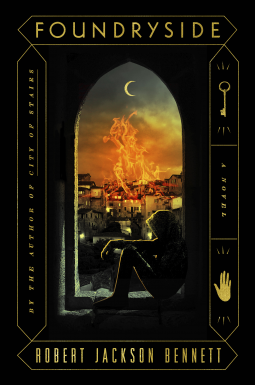 Foundryside, by Robert Jackson Bennett (Crown)
Foundryside, by Robert Jackson Bennett (Crown)I just loved this fantasy adventure, with its compelling heroine and system of “industrialized magic.” The world is an oppressive portrayal of social inequality of the Industrial Revolution. Great families wall themselves up in “campos” and live lives of luxury while the rest of the city suffers pollution and dire poverty. Myths from the past provide tantalizing, terrifying hints of how the entire system of magic came into being.
Young Sancia managed to escape the slave plantations to eke out a living as a thief in the less savory neighborhoods of a great city. She’s able to “listen” to physical materials: “The wall spoke to her. The wall told her of foundry smoke, of hot rains, of creeping moss, of the tiny footfalls of the thousands of ants…” Sancia’s magic aids her in her marginal living, but is dwarfed by the real magic of the city: sigils that are “instructions written upon mindless objects that convinced them to disobey reality in select ways,” such as altering their gravity or adhesion to other objects.
Then Sancia opens a box she has been sent to steal and discovers a sentient key, “Clef,” who can persuade any lock to open, and her world changes forever. She’s not the only one after Clef – her employer will stop at nothing to gain control over the key. But who is her employer and what is that person’s greater plan? Mystery piles on action and personal growth, not only of Sancia herself but other characters. The world and its people are in precarious flux, inwardly and outwardly.
This is not a world in which I would like to live, yet almost from the beginning, I cared about Sancia and the people she encounters, especially Clef, who realizes that he more he uses his power to help his only friend, Sancia, the less of his personality survives. The story built as stakes were raised higher and higher. The magic was an intrinsic part of the world-building, with its own logically consistent rules and its own cost. Highly recommended.
The usual disclaimer: I received a review copy of this book, but no one bribed me to say anything about it. Although chocolates might be nice.

Published on March 15, 2019 01:00
Short Book Reviews: Teddy Roosevelt's Secret Agency in World War I
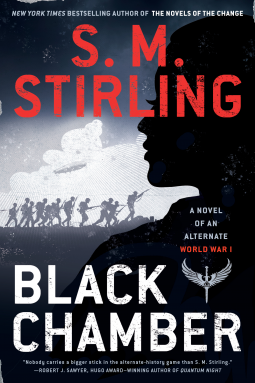 Black Chamber, by S. M. Stirling (Ace)
Black Chamber, by S. M. Stirling (Ace)S. M. Stirling has been writing alternate history for a long time now, and he handles the genre with ease and panache. This book is no exception; he’s created a perfectly believable world in which Theodore Roosevelt regains the presidency and is in office on the brink of World War I. Roosevelt’s enthusiasms have already shaped much of American culture and institutions, including a flowering of invention and his top-secret spy-and-assassin agency, the Black Chamber. Posing as an agent of the Partido Nacional Revolucionario (the resistance movement bent on freeing Mexico from American domination) Agent Luz O'Malley Aróstegui goes undercover in Europe to infiltrate the mobilizing German forces. The contrafactual history and subsequent changes are perhaps the most interesting aspects of the story, yet all this is but a background for what is essentially a spy thriller featuring a female James Bond. There’s sex (with and without romance), tension, and page upon page upon page of exciting action.
This raises my central concern about The Black Chamber. Is it a story set in an alternate Europe, as Germany is gearing up for war with chemical weapons? Does it focus on the unfolding differences that arose from Theodore Roosevelt’s re-election? Or is it essentially a spy thriller – and one in which a woman perpetuates the roles of male spy characters in literature – that could just as easily have taken place in the real world?
The writing is strong and the action scenes and step-by-step, tension-laden revelations are skillfully handled. My reservations are two-fold, as above. I had difficulty with those aspects of Luz that mirrored the most offensively sexist characteristics in male-dominated spy thrillers. Her internal monologues felt immature and insecure as well as insensitive. She didn’t seem to have any genuine relationships until Irish revolutionary and love interest Ciara Whelan came onstage.
Secondly, I found the long, detailed descriptions of action (such as page after page, step-by-agonizing-step portrayal of Luz climbing a wall) quickly went from interesting to tedious. Action often came to a screeching halt for long expository passages of technology, history, or geography. But the biggest problem was that I didn’t find the story hefty enough for its length. It felt to me like a novella stretched out to a fairly long novel. This is obviously a personal taste issue, and fans of Stirling (of which there are many!) will likely see this as a strength and The Black Chamber as a worthy addition to his bibliography.
The usual disclaimer: I received a review copy of this book, but no one bribed me to say anything about it. Although chocolates might be nice.

Published on March 15, 2019 01:00
March 11, 2019
Citadels of Darkover Author Interview: Steven Harper
Coming in May 2019
 Strongholds of rock . . . fortresses of the spirit . . . a planet set apart . . .
Strongholds of rock . . . fortresses of the spirit . . . a planet set apart . . .
Citadels can be psychic, emotional, and cultural as well as military, and the wonderfully imaginative contributors to this volume have taken the basic idea and spun out stories in different and often unexpected directions.
Pre-order it at:
ePub https://books2read.com/u/4XRR0N
Kindle https://amzn.to/2TmBBW0
Here I chat with contributor Steven Harper:
Deborah J. Ross: How did you become a writer?
Steven Harper: I started writing when I was nine years old because the library didn't have any of the kinds of books I wanted to read. I set out to write them myself. That's still how I operate!
DJR: Were there any pivotal moments in your literary journey?
SH: I made my first pro sale when I was thirteen. That was pretty pivotal! I wrote a letter to the editor of The Mother Earth News, which was a major international magazine at the time. I included my age with my signature, and the editor wrote back to say he could see that I could write and that I could type. Apparently both were equally important. If I wanted, I could query him about writing an actual article. I was raising rabbits at the time, so I wrote a query letter on that topic. When he wrote back to say he'd like to see the entire article, I was ecstatic--jumping and shouting all the way back from the mailbox. It took me a month to write the article, and the editor finally sent an acceptance letter. I remember finding it in the mailbox and reading it with a, "Well, that's nice" frame of mind, and I didn't understand why my parents were so thrilled. I had somehow gotten the idea that the go-ahead on the query was the actual sale. I didn't know back then that the getting the go-ahead on a query was actually the easy part. Selling the piece is the hard part!
DJR: Tell us about your introduction to Darkover.
SH: I didn't come to Darkover through the novels, believe it or not. I came to it through the anthologies. I read maybe two or three of the anthologies before I got around to looking up the original books. As a result, Darkover in my mind is always a place for short stories. It may be why I come with story-length ideas for the place.
DJR: What about the world drew you in?
SH: I've always been drawn to men with red hair. Make of that what you like. So a world ruled by redheaded men sounds pretty awesome to me!
DJR: What inspired your story in Citadels of Darkover? How did you balance writing in someone else’s world and being true to your own creative imagination?
SH: Here, I was a little mercenary. I'd already written and sold a story for Stars of Darkover on the premise of having a hardboiled Terran detective arrive on the planet and investigate a mystery with the help of a native. "Kira Ann" was great fun to write, and I think the idea worked very well. I wanted to do it again, so I used the same characters to track down a murderer in Citadels of Darkover.
DJR: Is there another Darkover story you would particularly like to write?
SH: Yep. I'm hoping to follow up on my story "Sight Unseen" for Masques of Darkover. A few things were left unresolved, and they need exploring!
DJR: What have you written recently? What is your favorite of your published works and why?
SH: I just sold a YA novel about a teenaged boy on probation who joins a summer theater program to keep his parole officer happy. To his surprise, he promptly falls in the love with the male lead in the show, and hi-jinks ensue. The working title is Behind The Scenes, but the publisher has another book with that title in the upcoming lineup, so we'll have to call it something else. I hate coming up with titles! My favorite work is whatever is the most recent. I'm like a parent who always favors the youngest!
DJR: What lies ahead for you?
SH: I have a story in the upcoming Lace And Blade 5 anthology, and I was very proud of the way that one turned out. I've been out of novel circulation for a while because I've been working on a mainstream novel, and I had to write the entire book before my agent could market it. It put a hole in my calendar, so to speak. I usually do a book a year, but this time around, I was "only" writing. My most recent book is Bone War, the final book in my Books of Blood and Iron fantasy trilogy.
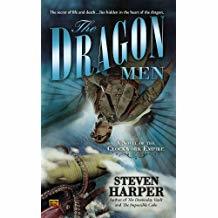 Steven Harper Piziks was born with a name that no one can reliably spell or pronounce, so he often writes under the pen name Steven Harper. He lives in Michigan with his husband and sons. When not at the keyboard, he plays the folk harp, fiddles with video games, and pretends he doesn’t talk to the household cats. In the past, he’s held jobs as a reporter, theater producer, secretary, and substitute teacher. He maintains that the most interesting thing about him is that he writes books. Most recently, he wrote the Books of Blood and Iron, a fantasy trilogy, for Roc Books.
Steven Harper Piziks was born with a name that no one can reliably spell or pronounce, so he often writes under the pen name Steven Harper. He lives in Michigan with his husband and sons. When not at the keyboard, he plays the folk harp, fiddles with video games, and pretends he doesn’t talk to the household cats. In the past, he’s held jobs as a reporter, theater producer, secretary, and substitute teacher. He maintains that the most interesting thing about him is that he writes books. Most recently, he wrote the Books of Blood and Iron, a fantasy trilogy, for Roc Books.

 Strongholds of rock . . . fortresses of the spirit . . . a planet set apart . . .
Strongholds of rock . . . fortresses of the spirit . . . a planet set apart . . .Citadels can be psychic, emotional, and cultural as well as military, and the wonderfully imaginative contributors to this volume have taken the basic idea and spun out stories in different and often unexpected directions.
Pre-order it at:
ePub https://books2read.com/u/4XRR0N
Kindle https://amzn.to/2TmBBW0
Here I chat with contributor Steven Harper:
Deborah J. Ross: How did you become a writer?
Steven Harper: I started writing when I was nine years old because the library didn't have any of the kinds of books I wanted to read. I set out to write them myself. That's still how I operate!
DJR: Were there any pivotal moments in your literary journey?
SH: I made my first pro sale when I was thirteen. That was pretty pivotal! I wrote a letter to the editor of The Mother Earth News, which was a major international magazine at the time. I included my age with my signature, and the editor wrote back to say he could see that I could write and that I could type. Apparently both were equally important. If I wanted, I could query him about writing an actual article. I was raising rabbits at the time, so I wrote a query letter on that topic. When he wrote back to say he'd like to see the entire article, I was ecstatic--jumping and shouting all the way back from the mailbox. It took me a month to write the article, and the editor finally sent an acceptance letter. I remember finding it in the mailbox and reading it with a, "Well, that's nice" frame of mind, and I didn't understand why my parents were so thrilled. I had somehow gotten the idea that the go-ahead on the query was the actual sale. I didn't know back then that the getting the go-ahead on a query was actually the easy part. Selling the piece is the hard part!
DJR: Tell us about your introduction to Darkover.
SH: I didn't come to Darkover through the novels, believe it or not. I came to it through the anthologies. I read maybe two or three of the anthologies before I got around to looking up the original books. As a result, Darkover in my mind is always a place for short stories. It may be why I come with story-length ideas for the place.
DJR: What about the world drew you in?
SH: I've always been drawn to men with red hair. Make of that what you like. So a world ruled by redheaded men sounds pretty awesome to me!
DJR: What inspired your story in Citadels of Darkover? How did you balance writing in someone else’s world and being true to your own creative imagination?
SH: Here, I was a little mercenary. I'd already written and sold a story for Stars of Darkover on the premise of having a hardboiled Terran detective arrive on the planet and investigate a mystery with the help of a native. "Kira Ann" was great fun to write, and I think the idea worked very well. I wanted to do it again, so I used the same characters to track down a murderer in Citadels of Darkover.
DJR: Is there another Darkover story you would particularly like to write?
SH: Yep. I'm hoping to follow up on my story "Sight Unseen" for Masques of Darkover. A few things were left unresolved, and they need exploring!
DJR: What have you written recently? What is your favorite of your published works and why?
SH: I just sold a YA novel about a teenaged boy on probation who joins a summer theater program to keep his parole officer happy. To his surprise, he promptly falls in the love with the male lead in the show, and hi-jinks ensue. The working title is Behind The Scenes, but the publisher has another book with that title in the upcoming lineup, so we'll have to call it something else. I hate coming up with titles! My favorite work is whatever is the most recent. I'm like a parent who always favors the youngest!
DJR: What lies ahead for you?
SH: I have a story in the upcoming Lace And Blade 5 anthology, and I was very proud of the way that one turned out. I've been out of novel circulation for a while because I've been working on a mainstream novel, and I had to write the entire book before my agent could market it. It put a hole in my calendar, so to speak. I usually do a book a year, but this time around, I was "only" writing. My most recent book is Bone War, the final book in my Books of Blood and Iron fantasy trilogy.
 Steven Harper Piziks was born with a name that no one can reliably spell or pronounce, so he often writes under the pen name Steven Harper. He lives in Michigan with his husband and sons. When not at the keyboard, he plays the folk harp, fiddles with video games, and pretends he doesn’t talk to the household cats. In the past, he’s held jobs as a reporter, theater producer, secretary, and substitute teacher. He maintains that the most interesting thing about him is that he writes books. Most recently, he wrote the Books of Blood and Iron, a fantasy trilogy, for Roc Books.
Steven Harper Piziks was born with a name that no one can reliably spell or pronounce, so he often writes under the pen name Steven Harper. He lives in Michigan with his husband and sons. When not at the keyboard, he plays the folk harp, fiddles with video games, and pretends he doesn’t talk to the household cats. In the past, he’s held jobs as a reporter, theater producer, secretary, and substitute teacher. He maintains that the most interesting thing about him is that he writes books. Most recently, he wrote the Books of Blood and Iron, a fantasy trilogy, for Roc Books.
Published on March 11, 2019 01:00
March 8, 2019
Very Short Book Reviews: Penric Rescues a Lady
The Prisoner of Limnos, A Fantasy Novella in the World of the Five Gods, by Lois McMaster Bujold (Subterranean)
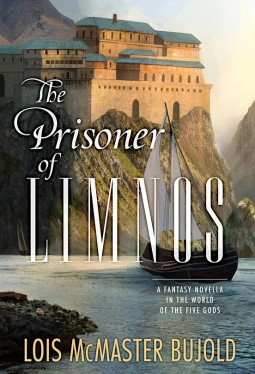
Penric is back! Still attempting to court Nikys, the widow he fell in love with in Mira’s Last Dance. Still kind and courageous and inwardly torn and immensely gifted. This time, Nikys’s mother has been taken hostage in a complicated political maneuver, and it’s up to her and Penric (and Desdemona, his inward-dwelling chaos demon, and all of Desdemona’s many previous hosts) to rescue the lady. Another superb tale set in the world of the Five Gods.
The usual disclaimer: I received a review copy of this book, but no one bribed me to say anything about it. Although chocolates might be nice.

Published on March 08, 2019 01:00
March 6, 2019
Today's Moment of Art
Published on March 06, 2019 01:00
March 4, 2019
Citadels of Darkover Author Interview: Evey Brett
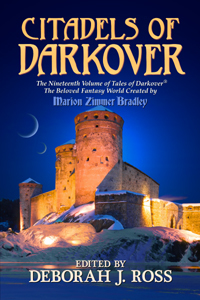 Coming in May 2019Strongholds of rock . . . fortresses of the spirit . . . a planet set apart . . .
Coming in May 2019Strongholds of rock . . . fortresses of the spirit . . . a planet set apart . . .Citadels can be psychic, emotional, and cultural as well as military, and the wonderfully imaginative contributors to this volume have taken the basic idea and spun out stories in different and often unexpected directions.
Pre-order it at:
ePub https://books2read.com/u/4XRR0N
Kindle https://amzn.to/2TmBBW0
Here I chat with contributor Evey Brett:
Deborah J. Ross: How did you become a writer?Evey Brett: I was a music major in college, and toward the end I got to a point where I couldn’t play a whole note without freaking out and needed a creative outlet, one that wasn’t noisy. I’d always liked writing stories and had written several as a kid and teen, so writing stories as an adult came easily enough. I started with some fan fiction and realized I could never sell it, so I started going to the library and picking up books on writing so I could learn to write in an original world. I took some classes at a community college, got accepted into the Clarion writer’s workshop, and my career picked up from there.
DJR: Were there any pivotal moments in your literary journey?EB: There are a few. I went to a very good writer’s program at a community college in San Diego, and was a little stunned when one of the teachers told me my story was good. That gave me the confidence to keep writing. There was going to Clarion, of course, and I believe it was the next summer when WesterCon came to San Diego and I met Deborah J. Ross, and we bonded over Darkover, and I’m so glad I was able to write three stories in a world that meant so much to me.
DJR: Tell us about your introduction to Darkover. EB: Back in 2002 when I was just out of college, I got a job working retail at a now-extinct Foley's department store in a mall. There was a Waldenbooks right across from the store, so I'd often go get a book and settle down in a comfy chair somewhere in the mall to eat my lunch and read. One day I was looking for a new book and picked up The Fall of Neskaya, and I was hooked. Fortunately for me (and the bookstore) they had several other Darkover novels as well.
DJR: What about the world drew you in? EB: I'm a sucker for stories with telepaths and damaged characters. I'd gone through a number of Mercedes Lackey's books, so finding Darkover gave me a whole new world with a sizeable canon to explore. Having just read the back of The Fall of Neskaya, I'd still pick it up to read because it's got everything I want--telepaths, power, gifts, a tormented character with a secret he can't reveal.
DJR: What inspired your story in Citadels of Darkover? How did you balance writing in someone else’s world and being true to your own creative imagination?EB: I don’t remember exactly where the inspiration came from, other than wanting to write a chieri story and having DyanArdais’s dance in Heritage of Hastur stick in my head. As far as writing in someone else’s world, I find that the limitations actually make it easier to construct a story, and I find it kind of fun to work out story details that function within the world. Plus I enjoy research, which means flipping through multiple books and resources to find details I can use—like how chieri have ecstatic dances of their own.
DJR: Is there another Darkover story you would particularly like to write?EB: I’ve wanted to write a chieri story for a while now, and I managed to do it with this one. And since this is the last Darkover anthology, I’m glad my final story is also my favorite one.
 After being ordered (coerced?) to move to southern Arizona by her Lipizzan mare, Carrma, Evey Brett developed a fondness for the local creepy-crawlies such as snakes, scorpions, tarantulas and Gila monsters, not to mention the coyotes, buzzards and hawks that frequent the area. Some of those critters (and/or Carrma) have influenced a number of Evey’s stories, including one in Masques of Darkover and several in Lethe Press anthologies. When not feeding carrots to her equine mistress, Evey can be found shuffling papers for the city or reading submission stories for The Magazine of Fantasy and Science Fiction.
After being ordered (coerced?) to move to southern Arizona by her Lipizzan mare, Carrma, Evey Brett developed a fondness for the local creepy-crawlies such as snakes, scorpions, tarantulas and Gila monsters, not to mention the coyotes, buzzards and hawks that frequent the area. Some of those critters (and/or Carrma) have influenced a number of Evey’s stories, including one in Masques of Darkover and several in Lethe Press anthologies. When not feeding carrots to her equine mistress, Evey can be found shuffling papers for the city or reading submission stories for The Magazine of Fantasy and Science Fiction.
Published on March 04, 2019 08:32

